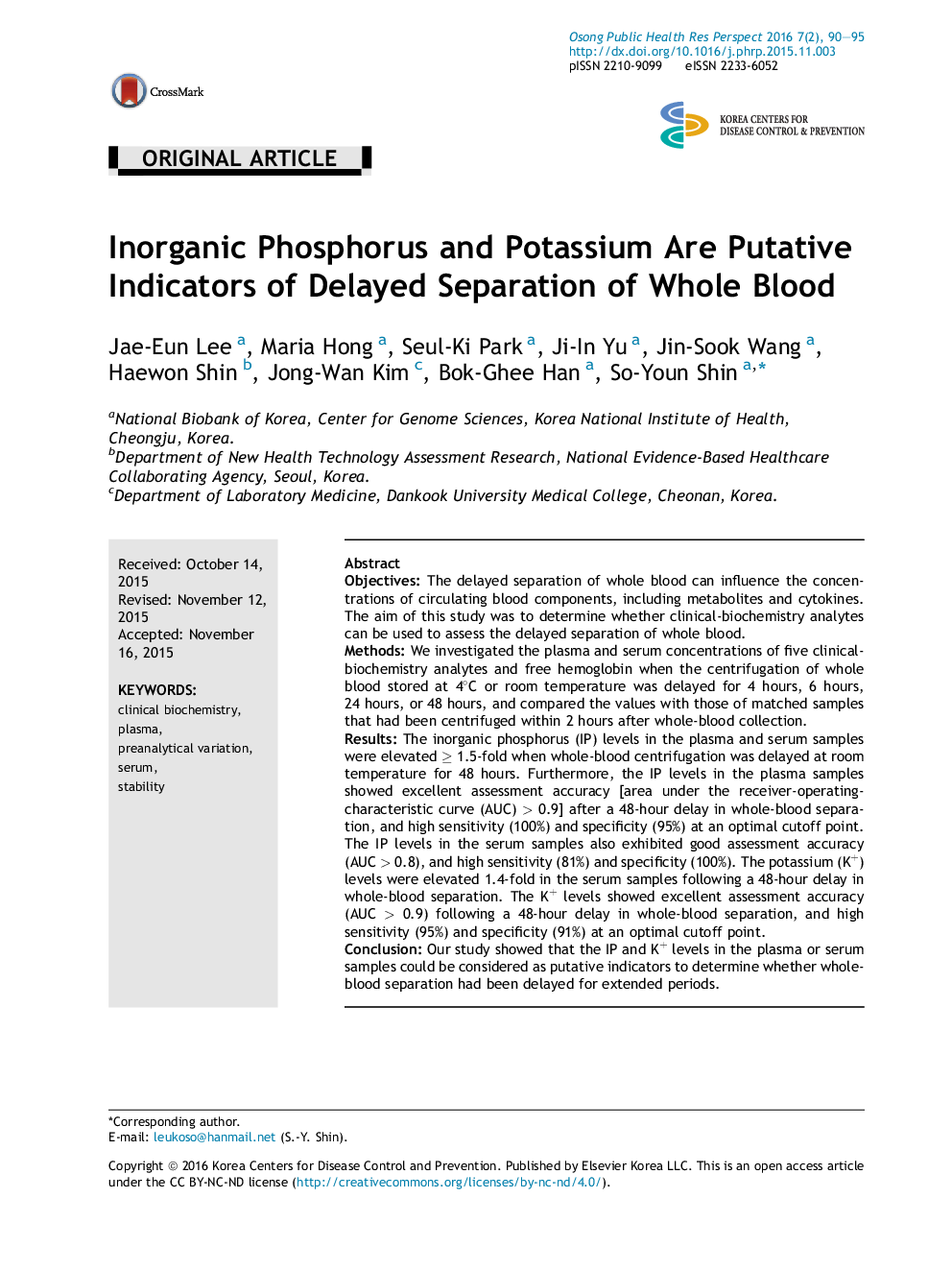| Article ID | Journal | Published Year | Pages | File Type |
|---|---|---|---|---|
| 4201881 | Osong Public Health and Research Perspectives | 2016 | 6 Pages |
ObjectivesThe delayed separation of whole blood can influence the concentrations of circulating blood components, including metabolites and cytokines. The aim of this study was to determine whether clinical-biochemistry analytes can be used to assess the delayed separation of whole blood.MethodsWe investigated the plasma and serum concentrations of five clinical-biochemistry analytes and free hemoglobin when the centrifugation of whole blood stored at 4°C or room temperature was delayed for 4 hours, 6 hours, 24 hours, or 48 hours, and compared the values with those of matched samples that had been centrifuged within 2 hours after whole-blood collection.ResultsThe inorganic phosphorus (IP) levels in the plasma and serum samples were elevated ≥ 1.5-fold when whole-blood centrifugation was delayed at room temperature for 48 hours. Furthermore, the IP levels in the plasma samples showed excellent assessment accuracy [area under the receiver-operating-characteristic curve (AUC) > 0.9] after a 48-hour delay in whole-blood separation, and high sensitivity (100%) and specificity (95%) at an optimal cutoff point. The IP levels in the serum samples also exhibited good assessment accuracy (AUC > 0.8), and high sensitivity (81%) and specificity (100%). The potassium (K+) levels were elevated 1.4-fold in the serum samples following a 48-hour delay in whole-blood separation. The K+ levels showed excellent assessment accuracy (AUC > 0.9) following a 48-hour delay in whole-blood separation, and high sensitivity (95%) and specificity (91%) at an optimal cutoff point.ConclusionOur study showed that the IP and K+ levels in the plasma or serum samples could be considered as putative indicators to determine whether whole-blood separation had been delayed for extended periods.
